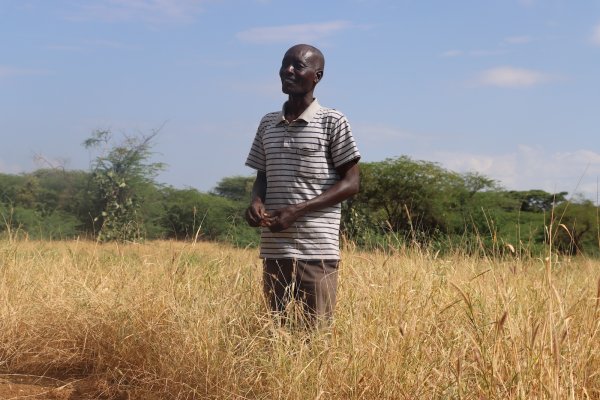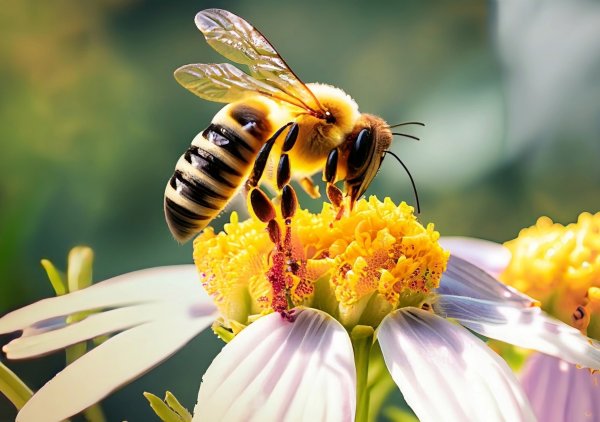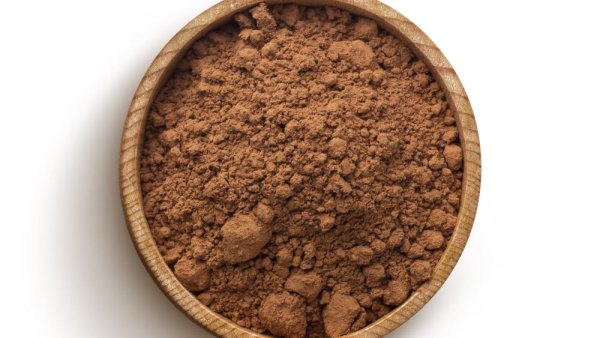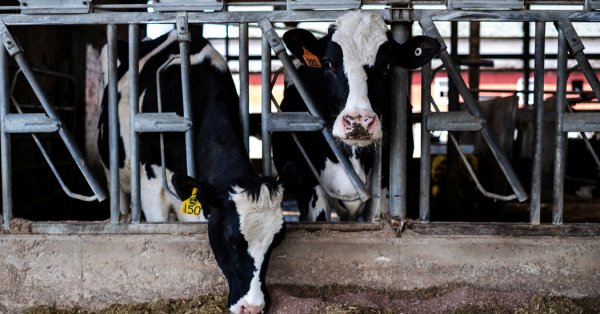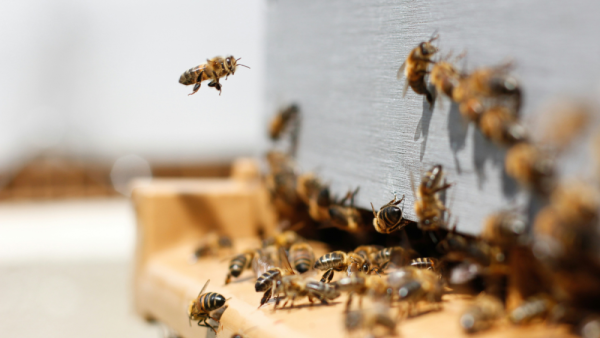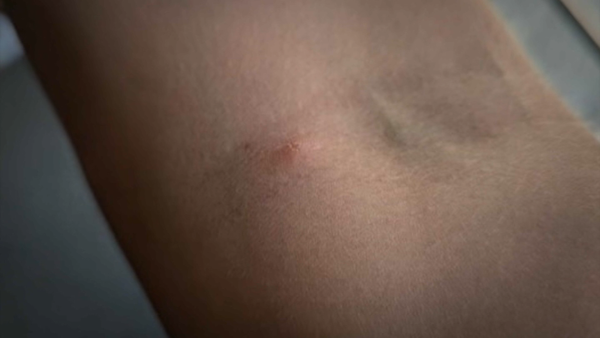New Center for Molecular Investigation of Neurological Disorders director named
| psu.edu
Janine Kwapis, the Paul Berg Early Career Professor in the Biological Sciences at Penn State, has been appointed director of the University's Center for Molecular Investigation of Neurological Disorders, an interdisciplinary research unit within the Huck Institutes of the Life Sciences.
This simple farming technique can capture carbon for thousands of years
| grist.org
Across the world, farmers are turning waste biomass into biochar, improving soils, boosting yields, and creating a new source of income. This article mentions Penn State's PlantVillage project.
Honey bees spread viruses to bumblebees in the spring
| earth.com
The experts found that honey bees consistently carried higher levels of viruses compared to bumblebees, particularly in the spring. This article quotes Heather Hines, associate professor of biology and entomology.
Habitat at Home: Goldenrod is glorious fall-blooming flower, powerful pollinator magnet
| citizen-times.com
Goldenrod, the glorious fall-blooming flower, is critical for monarch butterflies as they are passing through WNC on their way to Mexico. This article quotes Penn State Extension expertise.
Program awarded $750,000 to train future educators in global food security
| psu.edu
A project aimed at helping prepare undergraduate students to serve as future agricultural educators has received $750,000 in renewed funding from the U.S. Department of Agriculture’s National Institute of Food and Agriculture.
USDA grant funds cocoa benefits research to combat obesity-related health issues
| psu.edu
Cocoa may be the dark horse in the race against obesity, according to researchers at Penn State. Nearly one in three adults are overweight and more than two in five have obesity in the U.S., both conditions that come with inflammation-related health concerns. The U.S. Department of Agriculture has awarded a research team, led by Joshua Lambert, professor of food science in the Penn State College of Agricultural Sciences, a three-year, $650,000 grant to characterize the sex-specific beneficial effects of cocoa against obesity-related inflammation and fatty liver disease.
Healing the Red Moshannon: The toxic legacy of acid mine drainage
| wpsu.org
Due to the toxic effects of abandoned coal mine drainage, trout have not been seen in Moshannon Creek for generations. “Healing the Red Mo” tells how central Pennsylvania citizens, non-profits, public officials, researchers and students are taking action to clean the water and bring the creek back to life.
How U.S. farms could start a bird flu pandemic
| nytimes.com
The virus is poised to become a permanent presence in cattle, raising the odds of an eventual outbreak among people. This article quotes Troy Sutton, associate professor of immunology and infectious disease.
Honey bees may play key role in spreading viruses to wild bumble bees
| psu.edu
Honey bees may play a role in increasing virus levels in wild bumble bees each spring, according to researchers at Penn State who analyzed seasonal trends of parasite and virus transmission in bees.
Lab Bench to Commercialization Grant Program accepting 2024-25 proposals
| psu.edu
The Penn State Eberly College of Science’s Lab Bench to Commercialization Grant Program is now accepting applications for its 2024-25 funding cycle. The program provides competitive funds for college researchers and their collaborators to explore translation of their research, for example by testing a novel idea and generating a proof of concept.
USDA grant to fund robotic precision pesticide sprayer development
| psu.edu
Pesticides reduce crop loss, helping to stabilize production, but excessive use of pesticides has brought huge negative impacts to the environment and human health, according to the Environmental Protection Agency. To address the problem, a team of Penn State researchers is developing a robotic precision pesticide sprayer capable of targeted application while minimizing unintended exposure.
Bug spray won't protect you from itchy mite bites linked to cicada invasion. Here's what to do instead
| nbcchicago.com
The oak itch mites in Illinois are much worse compared to years past, thanks to the massive cicada emergence earlier this year. And they aren’t going anywhere just yet. This article quotes Penn State Extension expertise.


